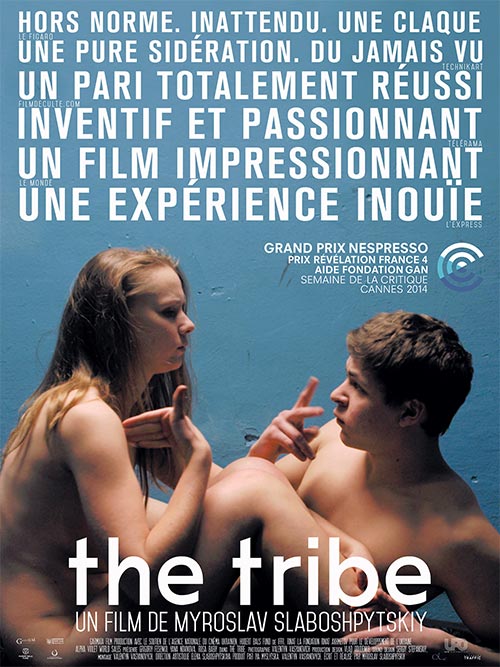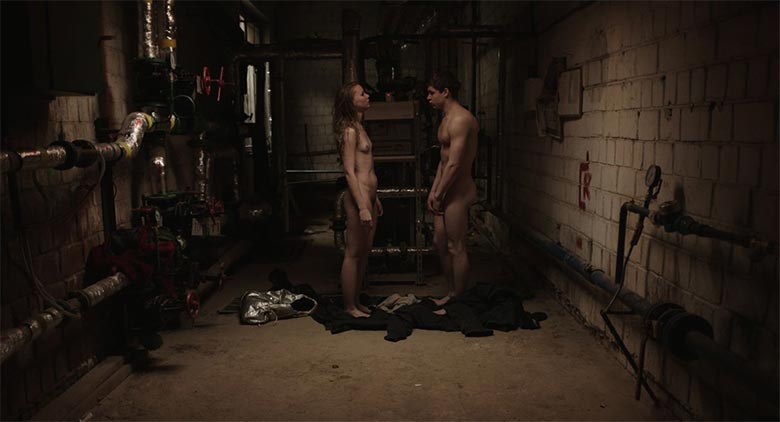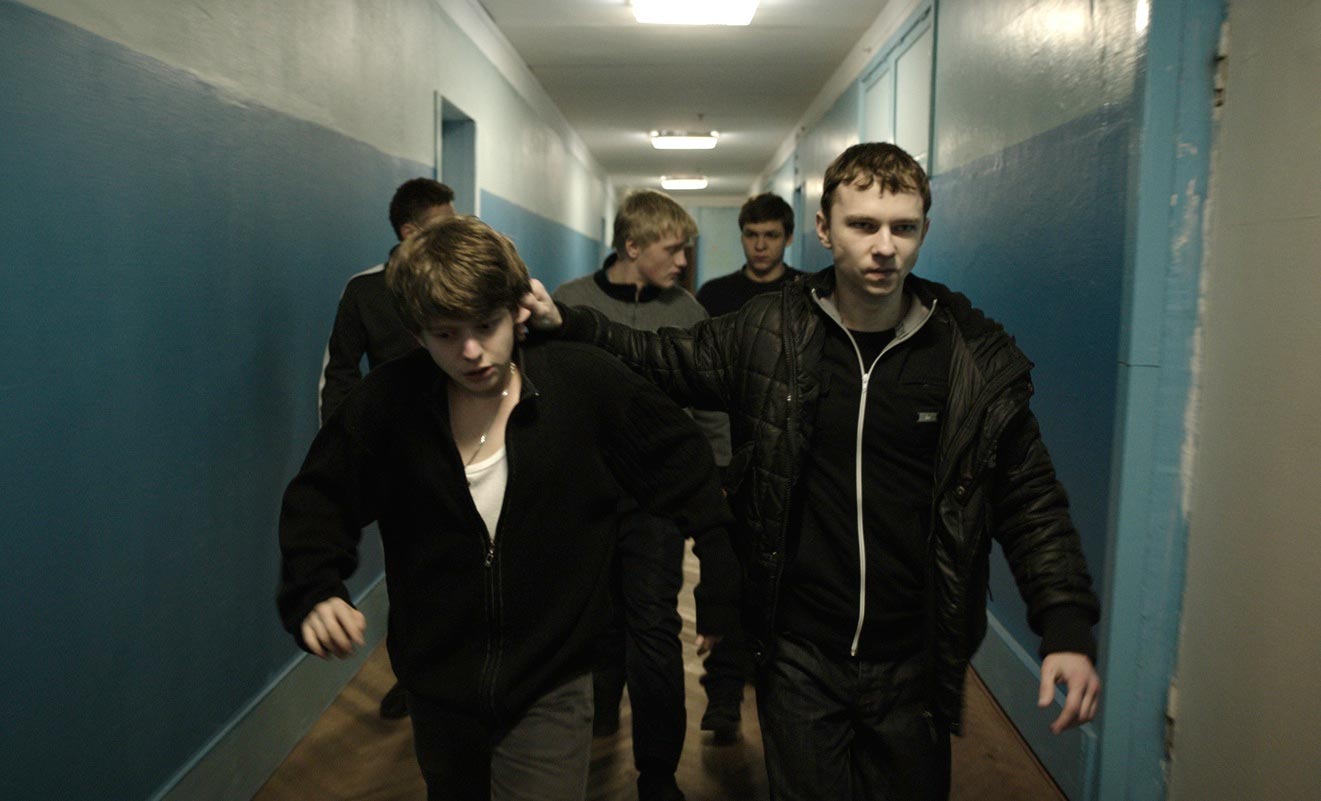 Calling to mind controversial films like Gaspar Noé’s Irreversible (2002) or Harmony Korine’s Gummo (1997) and Kids (1995), The Tribe can be construed by some as a film of senseless depravity. Over the course of two hours, it is unrelenting as it bleakly follows the lives of an isolated group of deaf-mute schoolchildren that perpetuate a hierarchical system of bullying, violence, and prostitution within the confines of their school and its adjacent living quarters. The film boasts proudly that no spoken words and no subtitles are necessary to convey its themes of love and hate — and in this regard, The Tribe is, from the get-go, unlike any other. Bold and polarizing, it wordlessly pulls one deep into its trenches, fictionalizing teenage depravity in the cold, rough climate of post-Soviet Ukraine.
Calling to mind controversial films like Gaspar Noé’s Irreversible (2002) or Harmony Korine’s Gummo (1997) and Kids (1995), The Tribe can be construed by some as a film of senseless depravity. Over the course of two hours, it is unrelenting as it bleakly follows the lives of an isolated group of deaf-mute schoolchildren that perpetuate a hierarchical system of bullying, violence, and prostitution within the confines of their school and its adjacent living quarters. The film boasts proudly that no spoken words and no subtitles are necessary to convey its themes of love and hate — and in this regard, The Tribe is, from the get-go, unlike any other. Bold and polarizing, it wordlessly pulls one deep into its trenches, fictionalizing teenage depravity in the cold, rough climate of post-Soviet Ukraine.
An incendiary debut feature-length written and directed by Kiev filmmaker Myroslav Slaboshpytskiy, The Tribe does not adhere to the typical Hollywood story arc of maturity and growth over the course of human experience. Instead, as it follows only a short period in the adolescent life of its main character — who is nameless, at least for the viewer’s intents and purposes — growth is relatively minimal, and certainly not in a positive direction. In the throes of darkness, and of being forcibly cornered into a new way of life, the lead character has a dark cloud looming over every aspect of his life, and The Tribe never ceases to manufacture an ever-impending and unrelenting sense of doom. Even when the film seems like it can sink no further into the deepest reaches of hell, it does indeed, through to its very end. Yet what is impressive is that it strangely never becomes predictable, and the lack of spoken language, and furthermore, of music, lets one focus breathlessly on what is often overlooked in everyday life. Silence makes way for a “soundtrack” of ambient environmental noise and complex emotions expressed through tense physicality.
The Tribe Film Review
Immense credit must also be given to Slaboshpytskiy and cinematographer-editor Valentyn Vasyanovych for the film’s expertly-orchestrated long takes. Each and every scene of The Tribe builds drama over the course of numerous minutes, seeming almost documentarian in the way it follows its characters. The result is an intimate, first-person look at the most dire of fictionalized human circumstances, unflinching in its graphic nature. These filmmakers exercise total control throughout a film that seems to lack it, and the general viewer’s reliance on the spoken word and lack of knowledge about sign language adds even more dissonance to an already chaotic film.
The Tribe does have one notable downfall, though, depending on its audience. Assessing the true meanings behind its crucial moments can be as much intriguing as distracting. Perhaps this distraction is found less in the filmmakers’ oversights and more in the ignorance of viewers — or perhaps some combination of both — but without being able to understand the dialogue, basic plot points are easily taken for granted. What could otherwise be a straight-forward romantic connection between the main male character and main female character becomes a mystery, and even logistical questions arise when one wonders whether vibrations from quick movements in a room, or from a reversing truck, might be enough to awaken the attention of a deaf individual. These questions encourage another bigger question about whether The Tribe is realistic or overly dramatized, even though the film does feel absolutely plausible throughout. Thanks to the severe relationship between viewer and filmmaker — in an eyes-forced-open-even-when-you-don’t-want-it-to-be, Clockwork Orange kind of way — The Tribe is wildly successful, even in its most obscene and extreme moments.

Ω






